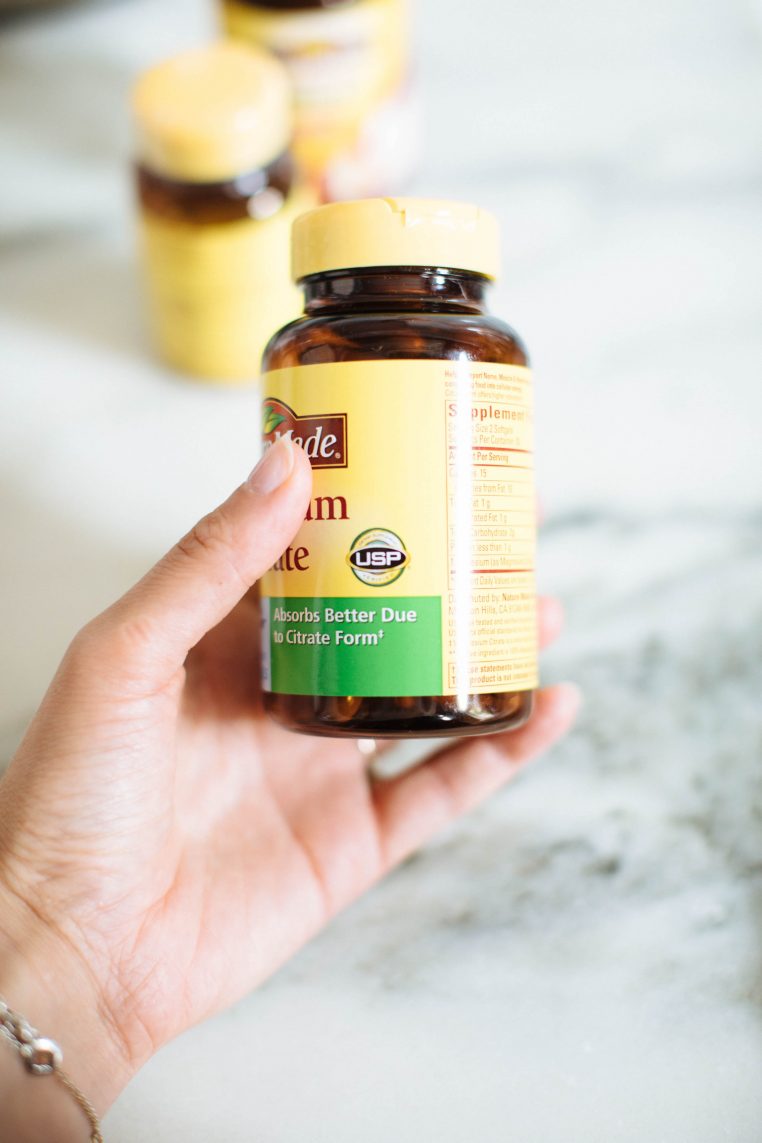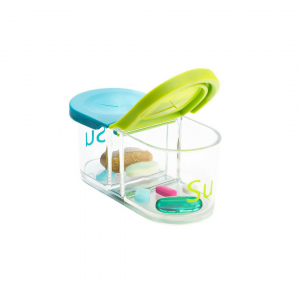Have you ever wondered what the keys things are to look for when buying dietary supplements?
According to the Council for Responsible Nutrition, a trade association that represents dietary supplement and functional food manufacturers in the U.S., more than 170 million Americans take dietary supplements. Whether you want to increase your vitamin D levels or boost your iron, supplements are a way to enhance your nutrition and ensure you’re getting all the nutrients your body needs.
Dietary supplements don’t go through an approval process like prescription drugs because supplements are regulated as food. Companies don’t have to provide proof that the capsules, powders, gummies, and liquids they sell contain the ingredients on their labels or provide the strength and amount of the nutrients stated on the label. That’s why today, I’m sharing the importance of using supplements with the official USP Verified Mark.
If you’re not familiar, USP is an independent, not-for-profit organization that sets federally recognized public standards of quality for medicines, dietary supplements, and food ingredients. Part of USP’s mission is to give manufacturers tools and resources they need to create safe, high-quality supplements so they protect their customers. Supplements with the USP Verified Mark not only means that what you’re buying what you see on the label, but that the product has met high-quality standards.
With that said, here are four quality assurance tests that USP practices to ensure that the supplements you’re buying have met high quality standards.
Here’s What To Look For When Buying Supplements:
1. Positive identification.
USP tests products to confirm that what’s on the label is indeed what’s in the bottle. This prevents you from buying capsules and gummies that falsely advertise to contain ingredients that they, in fact, don’t have. For example, the primary supplement ingredient in a vitamin D supplement should be vitamin D. The other items on the list are the ingredients that make the capsules.
2. Potency.
Oftentimes, supplements don’t contain enough of the key ingredients to be effective. A 2014 LabDoor report showed that some supplements had omega-3 levels 30 percent less than what’s listed on their labels. On the other hand, having too much of the key ingredients can also negatively affect your health and cause harm. USP conducts tests that ensure the dietary capsules you’re buying have the stated amount of ingredients in each dose, so you know what you’re doing to enhance your health, whether you’re taking a probiotic or a multivitamin.
3. Purity.
USP tests capsules, powders, and liquids for purity, so you don’t buy supplements that contain unwanted ingredients that can harm your health. Heavy metals, pesticides, and toxins are examples of common substances that USP checks for. In 2010, a Congressional investigation found trace amounts of lead and other contaminants in supplements. The same report also showed that 16 of the 40 supplements tested had pesticide residues that exceeded the legal amounts.
4. Performance.
If a tablet doesn’t dissolve, it means that the nutrients in it can’t be absorbed by the body, so manufacturers must use ingredients that can dissolve as intended. USP also checks that manufacturers are creating supplements in facilities following Food and Drug Administration (FDA) and USP Good Manufacturing Practices. USP will also do a facility audit each year to ensure companies are employing sanitary methods; they’ll also conduct random tests on products to ensure they meet program standards.
Let’s Hear It
What do you look for when you buy supplements? Do you know what the USP Verified Mark looks like? What tests do you do to ensure that you’re getting what you’re buying?
Share your tips with the NS community in the comments below or post on Instagram with #nutritionstripped. As always, talk to your doctor before you start taking any supplement or over-the-counter medication. Your doctor or dietitian can recommend a supplement for you and make sure that it doesn’t interact with other medications you’re taking.














